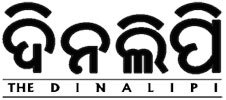New Delhi: The high-level committee, headed by former President Ram Nath Kovind, has recommended simultaneous elections in India by 2029. The committee on ‘one nation, one election’, which was formed by the Central government in September last year, submitted its report to President Droupadi Murmu on Thursday.
In its more than 18,000-page report, the committee stated that 32 political parties supported the “one nation, one election” while 15 opposed it. The committee had approached 62 parties but 47 of them responded. While BJP and most of its allies were in favour of it, some opposition and regional parties said no.
The committee said simultaneous elections would lead to a “fundamental transformation” in the electoral process and overall governance. It also recognised the significance of the single electoral roll and single elector’s photo identity card (voter card) for elections to the Lok Sabha, State Legislative Assembly and local bodies (municipalities and panchayats) to safeguard the rights of voters.
According to reports, the panel has recommended amending the Constitution so that elections to Lok Sabha and all state assemblies and local bodies can be held simultaneously by 2029, India Today reported.
The report suggested that the Centre must develop a legally tenable mechanism to restore the cycle of simultaneous elections and recommended adjusting the terms of legislative assemblies in three phases over next five years.
In case of a hung parliament or no-confidence motion, fresh elections can be held for the remainder of the five-year tenure, the panel suggested.
Besides political parties, the panel took suggestions from other stakeholders including experts, retired judges, and retired election commissioners. All four former Chief Justices of India including Dipak Misra, Ranjan Gogoi, SA Bobde and UU Lalit supported the idea.
While nine HC Judges supported the ‘one nation, one election’ proposal, three including Justices Ajit Prakash Shah (Delhi HC), Girish Chandra Gupta (Calcutta HC), and Sanjib Banerjee (Madras HC) opposed it. One retired election commissioner was also against it, PTI reported.
Justice Shah said it may curb democratic expression, Justice Gupta believed that simultaneous elections are not conducive to principles of democracy and Justice Banerjee said it could undermine the country’s federal structure.




Comments are closed, but trackbacks and pingbacks are open.